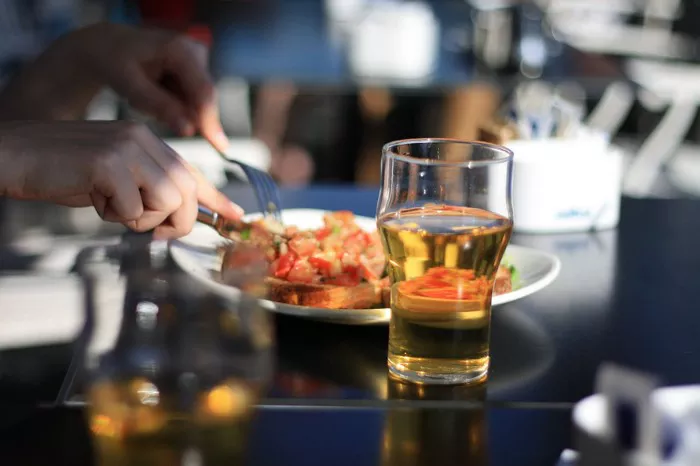Martinis, with their classic allure and sophisticated reputation, have long been associated with elegance and refinement. Yet, when it comes to gender, stereotypes often come into play. The question, “Are martinis good for girls?” raises inquiries not only about the drink itself but also about societal perceptions and gender norms. Let’s delve into this topic, examining the components of a martini, its cultural connotations, and whether it truly matters who enjoys this iconic cocktail.
The History of Martinis: Gender and Cultural Context
To understand the role of martinis in gender perceptions, it’s essential to grasp the historical and cultural context surrounding this iconic cocktail. Originating in the late 19th century, the martini has evolved from its early iterations to become a symbol of sophistication and class. However, its association with masculinity has been prevalent throughout history, often depicted in literature, film, and popular culture. This historical backdrop sets the stage for the ongoing debate regarding whether martinis are suitable for all genders.
Deconstructing the Martini: Ingredients and Preferences
A classic martini typically consists of gin, vermouth, and garnishes such as olives or lemon twists. However, variations abound, including vodka martinis, dirty martinis, and fruity twists on the traditional recipe. The question of whether martinis are good for girls encompasses not only the ingredients but also individual taste preferences. While some may prefer the bold flavors and complexity of a classic martini, others may opt for sweeter or fruitier variations. Ultimately, the enjoyment of a martini, regardless of gender, boils down to personal taste and preference.
Gender Stereotypes and Societal Expectations
The inquiry, “Are martinis good for girls?” reflects broader societal attitudes toward gender and alcohol consumption. Historically, certain drinks have been gendered, with cocktails like martinis often associated with masculinity, while others are deemed more feminine. These stereotypes not only perpetuate gender norms but also contribute to the stigmatization of individuals who deviate from traditional expectations. Challenging these stereotypes requires a shift in perspective, recognizing that enjoyment of a particular drink should not be dictated by gender but by personal preference and taste.
Empowerment Through Choice: Redefining Gender Norms
In recent years, there has been a growing movement toward gender inclusivity and empowerment, challenging traditional norms and stereotypes. The question, “Are martinis good for girls?” underscores the importance of redefining gender norms and allowing individuals the freedom to make choices based on personal preference rather than societal expectations. Empowerment comes not from conforming to predetermined roles but from embracing diversity and celebrating individuality.
Cultural Representation and Media Influence
The portrayal of martinis in media and popular culture often reinforces gender stereotypes, depicting the drink as a symbol of masculinity and sophistication. From James Bond’s famous preference for vodka martinis to the suave imagery associated with martini culture, the message conveyed is clear: martinis are for men. However, this narrow representation fails to acknowledge the diverse range of individuals who enjoy martinis, regardless of gender. By challenging outdated stereotypes and promoting diverse representation, media can play a pivotal role in reshaping perceptions surrounding martinis and gender.
See Also: hard cocktails to make
Breaking Barriers: Women in Mixology
The world of mixology has long been dominated by men, with female bartenders often facing discrimination and marginalization within the industry. However, there has been a significant shift in recent years, with women making strides in the world of cocktails and mixology. Female bartenders and mixologists are challenging stereotypes and breaking barriers, proving that expertise and skill know no gender. Their presence behind the bar serves as a powerful reminder that martinis, like any other drink, are meant to be enjoyed by all.
Empowering Choices: Personal Preference Over Gender Norms
At its core, the question, “Are martinis good for girls?” is not about the drink itself but about challenging outdated gender norms and empowering individuals to make choices based on personal preference. Whether one enjoys a classic gin martini or a creative variation, what matters most is the freedom to choose without fear of judgment or stereotype. By embracing diversity and celebrating individuality, we can create a more inclusive society where everyone feels welcome to enjoy a martini, regardless of gender.
Conclusion: Rethinking Gender and Cocktails
In conclusion, the question of whether martinis are good for girls speaks to larger issues of gender stereotypes and societal expectations. By deconstructing stereotypes, challenging norms, and promoting inclusivity, we can create a more equitable society where individuals are free to enjoy their favorite cocktails without fear of judgment or stigma. Ultimately, the enjoyment of a martini, like any other drink, should be based on personal taste and preference, not on outdated notions of gender. So, the next time someone asks, “Are martinis good for girls?” the answer is simple: martinis are for anyone who enjoys them. Cheers to breaking barriers and embracing diversity in the world of cocktails.


